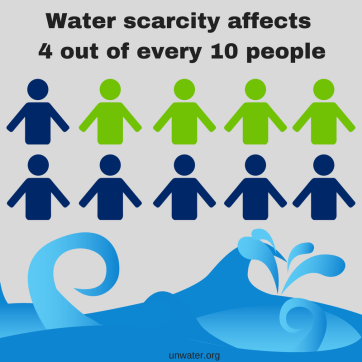It is easy to forget about conserving energy when it seems like there is an unlimited amount in our homes and dorms.

Graduate student Aide Cuenca takes pride in being energy efficient. At her apartment in the graduate housing on campus, Cuenca does her hardest to save the water that is being used.
“When I moved here I realized that you can drink the water from the faucet and it’s safe,” Cuenca said.
In her home country of Ecuador, they do not have running water and have to buy water from the water trucks that deliver to their community.
“I have to be very mindful in the ways that I use the water,” Cuenca said. “I remember my mom telling me how hard it was in the beginnings of the community to get water.”
Cuenca takes buckets and puts them in the shower while the water heats up to catch and save what would typically go down the drain.
“Sometimes when you are in a hurry, you do not want to take the time to put a bucket in the shower,” Cuenca said. “But that is my responsibility.”
From there, she uses the water in the bathroom to flush the toilet. It is a common habit that they do in Ecuador that she brought with her to the states.
“I learned how to do this growing up and I have been doing it since I was little,” Cuenca said.
Cuenca works with her roommate and shows her ways to be efficient with their water.
“It is a little thing that I do but it’s a way to remind myself that if I want to seek change, I need to be patient.”
According to the EPA, Americans use an average of 88 gallons of water each day.
Cuenca and her roommates try to save energy in more ways than one. Such as turning off the lights and electricity, not wasting food in their house and recycling. During the summer she also wants to try planting and using a compost.
Developing countries are the parts of the world that are impacted by climate change the most. A lot of the people rely on farming as a way of survival. This is not always a good thing because when they experience droughts and other extreme weather conditions they can lose their crops. Aside from that, a lot of areas do not have running water or electricity in their homes.
“In my community, I have witnessed times when the water trucks do not come and leave families without water for days,” Cuenca said.
When Cuenca arrived at Cabrini she became a CRS Ambassador and got more involved with climate change. She began advocating for climate change, after experiencing it herself, to change the minds of people who do not believe in it.
“Coming from a country that is being affected because of climate change I know that people don’t typically see how developing economies, as we [Ecuador] are described, are affected by climate change,” Cuenca said.
According to a Pew Research study, 31 percent of adults think climate change is due natural causes while 20 percent believe there is no evidence of climate change.
“The way that students are living can have a negative impact on our world,” Cuenca said. “The fact that students are talking about climate change is important.”


